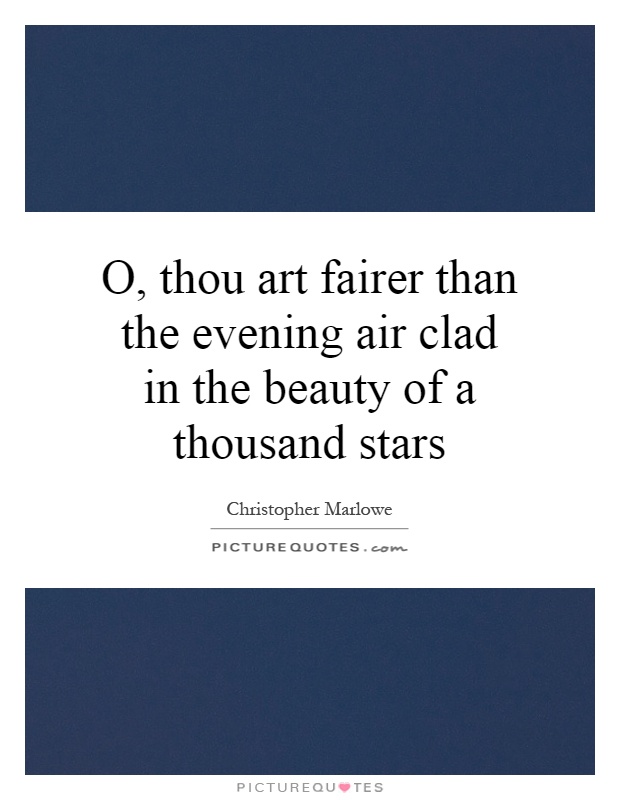O, thou art fairer than the evening air clad in the beauty of a thousand stars

O, thou art fairer than the evening air clad in the beauty of a thousand stars
Christopher Marlowe was a renowned English playwright and poet who lived during the Elizabethan era. Known for his powerful and evocative language, Marlowe's works often explored themes of love, beauty, and the complexities of human emotion. One of his most famous plays, "Doctor Faustus," delves into the consequences of ambition and desire, and the quote "O, thou art fairer than the evening air clad in the beauty of a thousand stars" perfectly encapsulates Marlowe's ability to capture the essence of beauty and desire in his writing.In this quote, Marlowe uses vivid imagery to convey the overwhelming beauty of the subject. The comparison of the subject to the evening air, adorned with the beauty of a thousand stars, suggests a sense of ethereal and otherworldly beauty. The evening air is often associated with a sense of calm and tranquility, and by likening the subject to this serene image, Marlowe emphasizes their beauty and grace.
Furthermore, the mention of a thousand stars adds a sense of grandeur and magnificence to the description. Stars have long been symbols of beauty and wonder, and by invoking this image, Marlowe elevates the subject to a celestial level of beauty. The use of the word "clad" also suggests a sense of adornment and decoration, as if the subject is draped in the splendor of the night sky.
Overall, this quote showcases Marlowe's skill in crafting evocative and poetic language. His ability to paint a vivid picture with words allows the reader to fully immerse themselves in the beauty and wonder of the subject. Through this quote, Marlowe captures the essence of desire and admiration, as the speaker is overwhelmed by the sheer beauty of the subject before them.












 Friendship Quotes
Friendship Quotes Love Quotes
Love Quotes Life Quotes
Life Quotes Funny Quotes
Funny Quotes Motivational Quotes
Motivational Quotes Inspirational Quotes
Inspirational Quotes